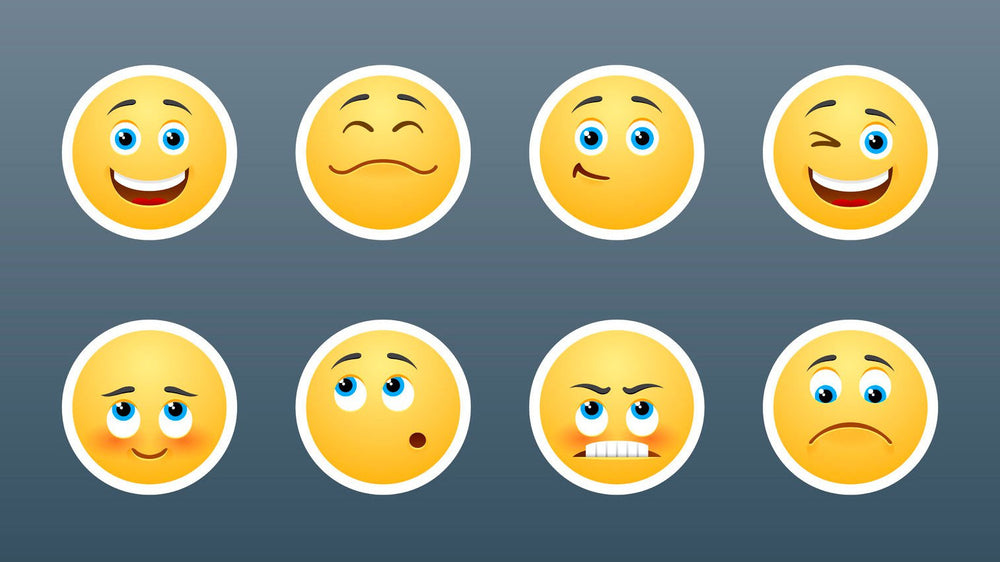
I’ve lost count of the number of conversations I’ve had with people on the topic of whether or not emotions can affect our health. Inevitably, anecdotal stories get used to make one argument or another - “My uncle was the angriest, meanest man on the planet and he lived to the age of 94” or “My auntie was told she had six months to live, but she’s the happiest, most positive person I know and is still alive and kicking five years later.”
As a journalist I love hearing stories like this. Stories form the glue that binds us together and when we hear them we can’t help but compare and contrast them to our own lives and search for meaning. On the other hand, ever since I began searching for solutions to a chronic disease doctors told me they had no cure for, I’ve also become somewhat of a science nerd. I’ve found so many answers to my health questions in science, so for this week’s blog I thought I’d dive in and see what science has to say on the matter of emotions and health.
When researchers have tackled this question, they tend to view it from one end of the emotional spectrum or the other. Either they ask whether or not positive emotions are good for us, or whether or not negative emotions are bad for us. Indeed when their messages get translated into book titles and headlines, they often drill down to one single argument - “Positivity: The Upwards Spiral that Will Change Your Life” or “Bright Sided: How Positive Thinking is Undermining America.”
There is however an emerging line of enquiry pondering what the interplay between emotions and health may be. That is to say, taking the good with the bad may in fact be the key to health outcomes. For instance, research has shown that if you’re deep in feelings of grief after the loss of a loved one, allowing positive memories to be experienced alongside your sadness could lead to a healthier bereavement process.
Some of the most compelling findings on mixed emotions come from a surprising place. Hal Hershfield is an expert in behavioral economics from the University of California Los Angeles. When he’s not studying topics such as ‘How to Make Discretionary Money Last’, he’s studying the role of emotions in health. In one study, Hershfield observed 47 adults undergoing psychotherapy for difficult life events such as going through a divorce and found that simply increasing levels of happiness didn’t improve people’s wellbeing. Rather, it was the people who experienced a mixture of positive and negative emotions who saw subsequent improvements in their wellbeing.
Here are two examples of personal reflections from people in the study who expressed a mixed emotional experience. You’ll note that they highlight both their sadness and their happiness:
- I am committed to trying to make every day better than the day before. So far, it's been tough going at times, with frequent setbacks involving much sadness and feelings of helplessness at times. But the fact that I'm working on improving in and of itself makes me feel better about my future and makes me happy and hopeful despite my slow progress and often listless feeling.
- This has been a difficult couple of weeks. My wife and I celebrated the good news of a healthy pregnancy report at nine weeks (the time when we lost our pregnancy last January). But I also feel the sadness of still looking for a job and for my wife and my pending loss of my wife's grandmother. It feels as if “what more can I take.” But, in reality I also feel reasonably confident and happy. Not that I don't feel down, but I also feel happy with my marriage.
Hershfield hasn’t only looked at improvements of mental wellbeing. He’s also looked at the link between mixed emotions and physical health. Over a ten year period he looked at the emotional wellbeing of 186 people and found that not only were frequent experiences of both positive and negative emotions strongly associated with relatively good physical health, but also that if people experienced an increase of mixed emotions over many years, it counter balanced typical age-related health declines.
This research is still very much in it’s infancy and the physiological mechanisms that may explain how a mix of positive and negative emotions can have health benefits is still unknown, but nevertheless, there is still a clear take away from what we do know. Rather than only searching for the next thing we think will make us happier or trying to escape pain and suffering, this research indicates the answer may instead lie in balance.
In their excellent book The Upside of Your Dark Side, psychologists Tod Kashdan and Robert Biswas-Diener call this concept wholeness. They believe that the key lies in mental agility - the ability to access our full range of emotions in order to respond appropriately in any situation.
Next time I find myself deep in conversation about emotions and health, I’ll tune my ear to the details of the story I’m being told and inquire whether or not the grumpy uncle who lived forever may have also had a softer side, and whether or not the upbeat aunt also had an inner wisdom when it came to processing the full spectrum of emotional experience. It may well be that the secret to their good health was in their innate ability to take in the good with the bad.





 The Connection (DOWNLOAD-TO-OWN)
The Connection (DOWNLOAD-TO-OWN) My Year Of Living Mindfully - Book
My Year Of Living Mindfully - Book




